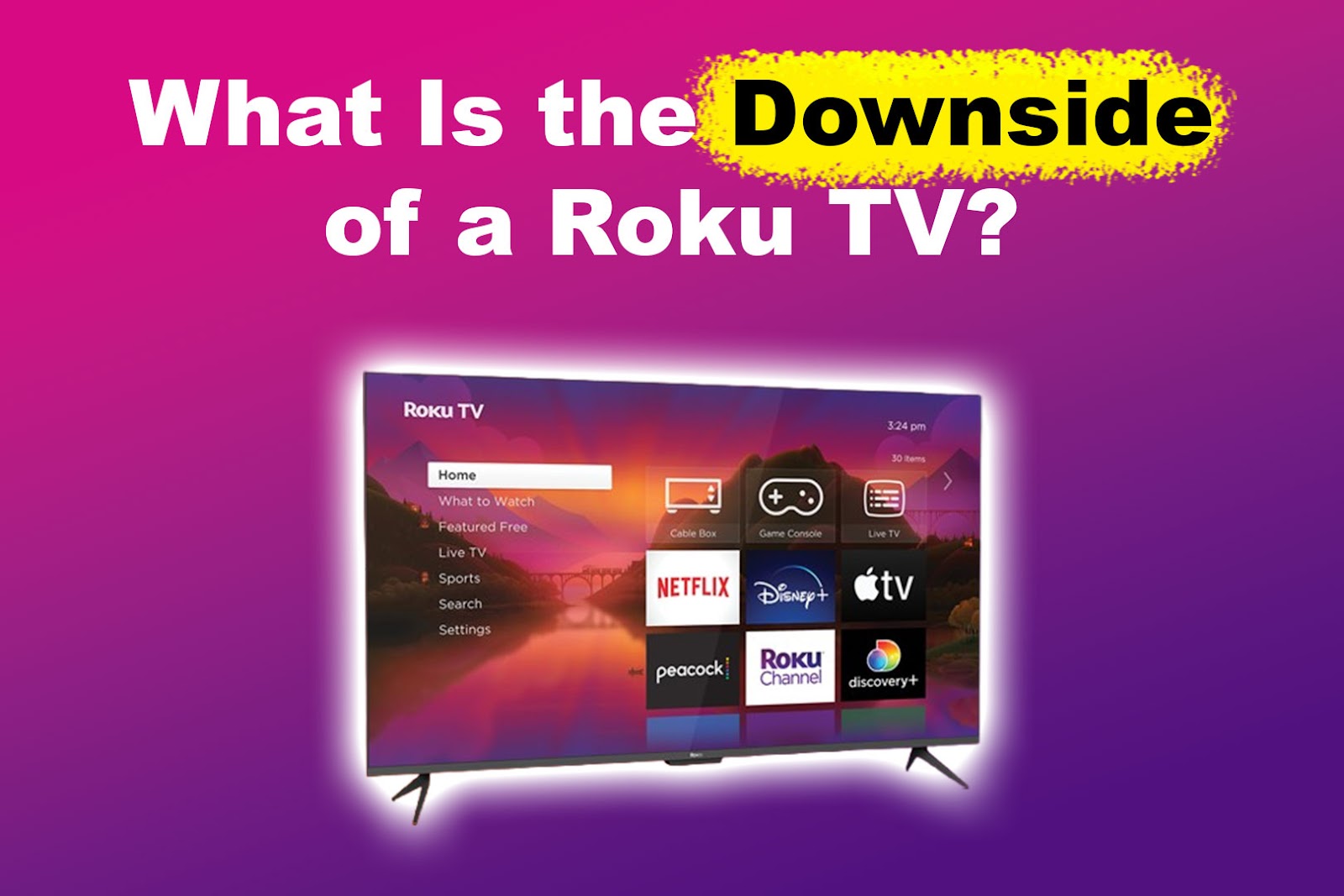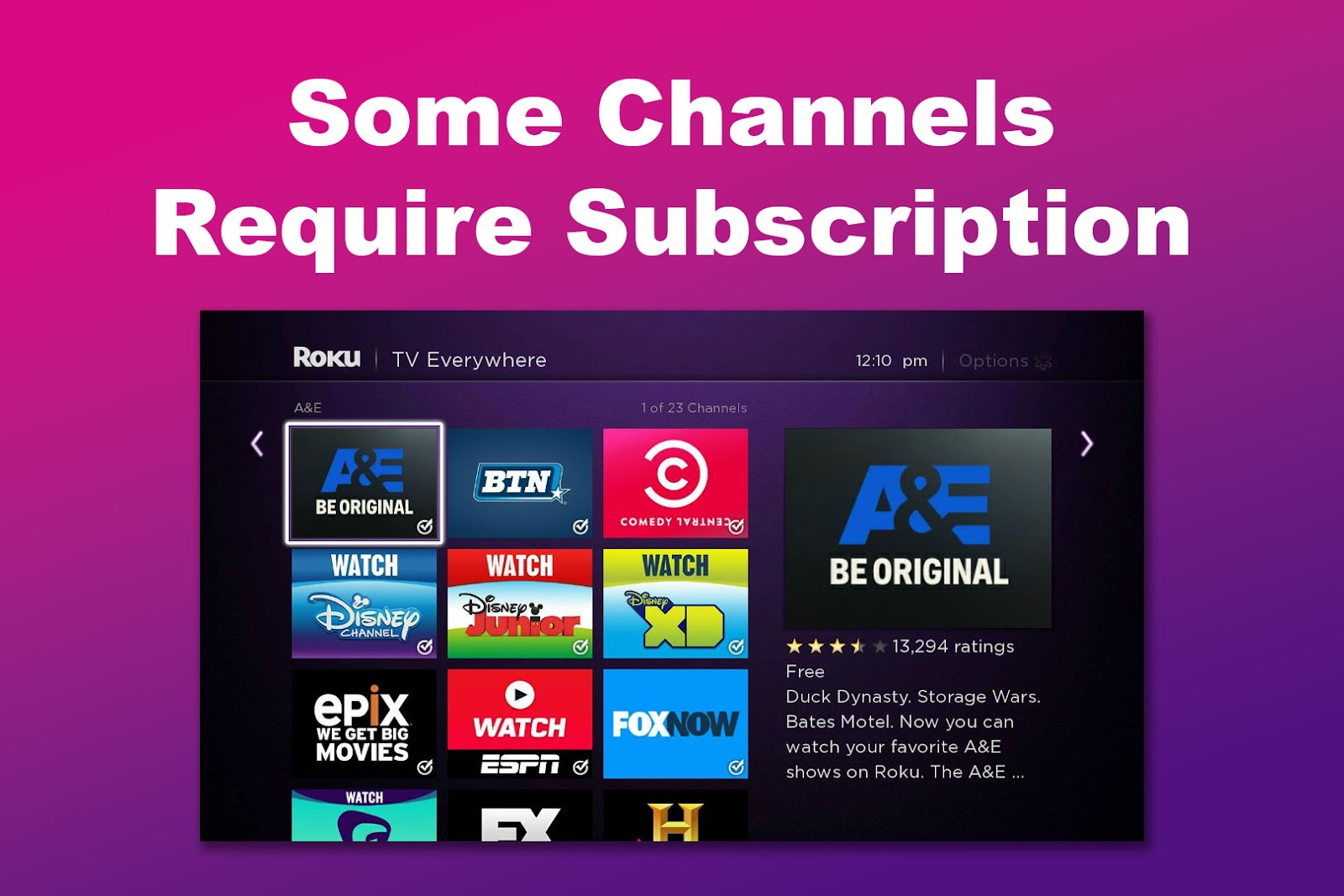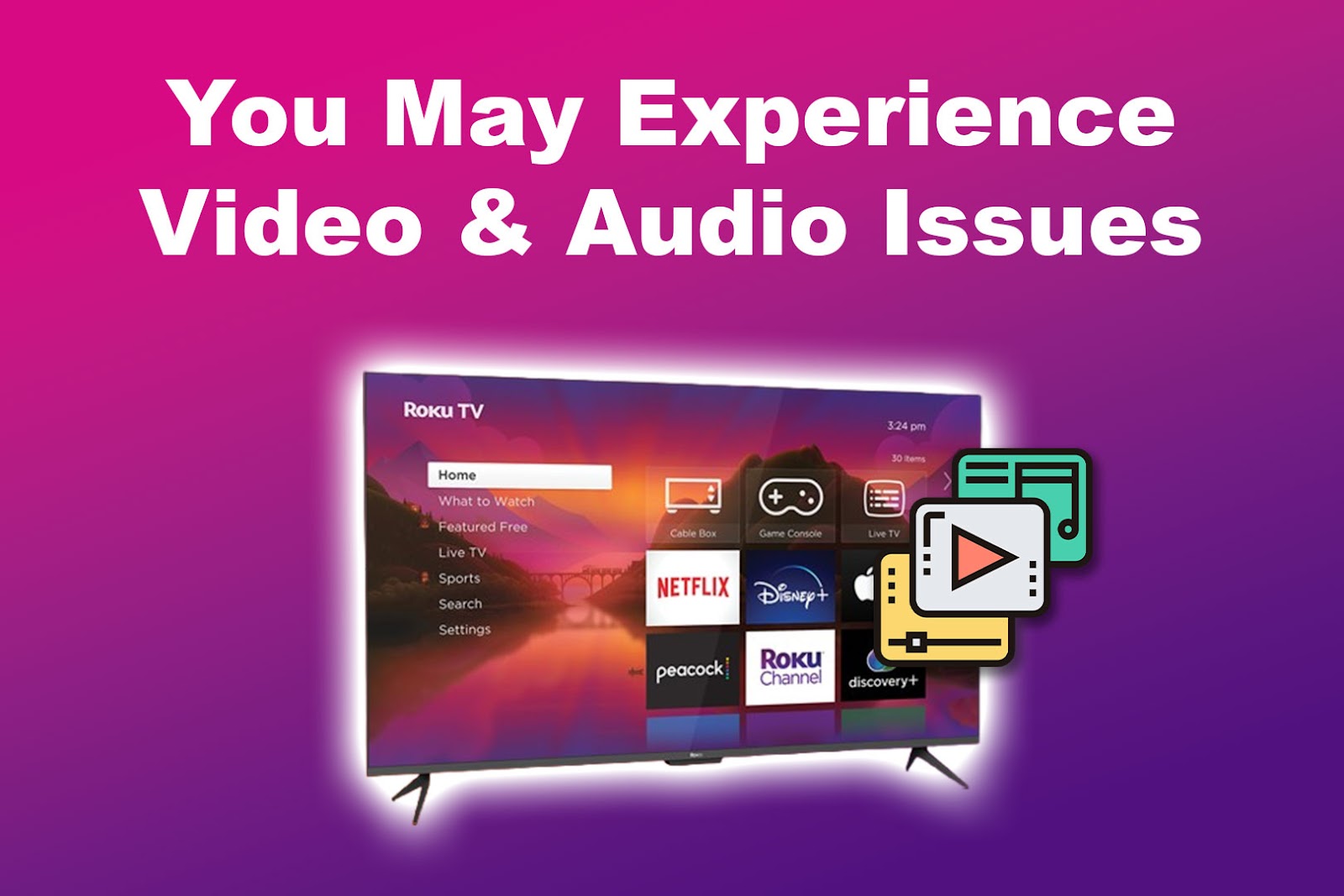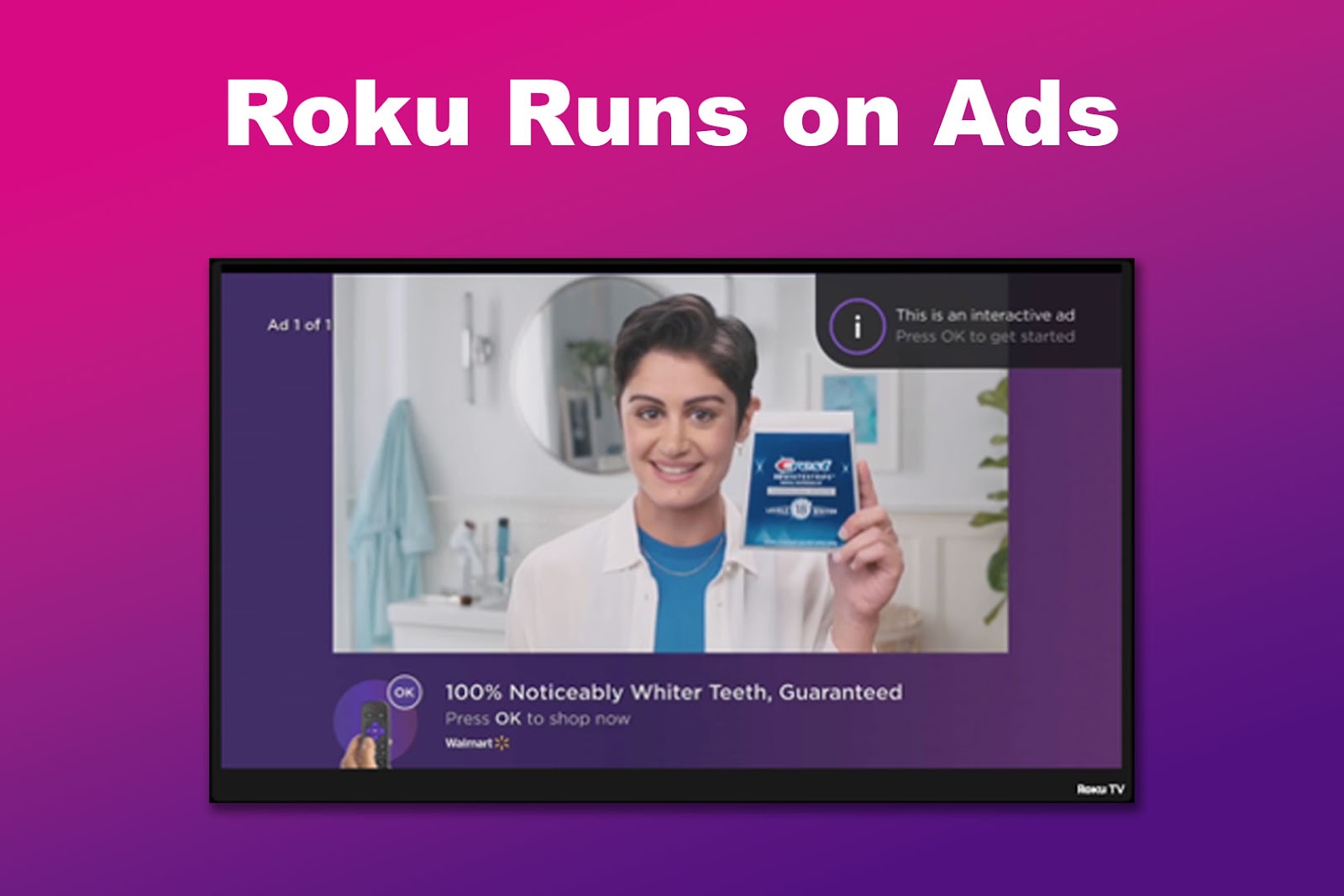When buying devices, we always look for product reviews first to determine whether they are worth buying. The same goes for buying a Roku TV. You’ll spend a few hundred dollars on a Roku TV, so it’s only fitting to research its pros and cons to avoid making an expensive mistake.

That said, we’re here to give you a thorough list of the downsides and benefits of a Roku TV so you can decide whether to get one. Let’s get into it!
Are Roku TVs Good?
Yes, Roku TVs are good devices if you want to “cut” your cable connection. It allows you to access thousands of streaming channels and live TV. A Roku TV’s home screen is also customizable, allowing you to organize the channels you often visit for easy access.
Roku TVs are usually more affordable than smart TVs. So, if you don’t have a smart TV yet and want to watch streaming content, getting a Roku TV is a good idea.
However, it’s worth noting that some of Roku’s channels, such as Hulu, Amazon Prime Video, and Netflix, require a separate monthly subscription.
What Are the Downsides of a Roku TV?
Although Roku TVs have many benefits, they also present some downsides.
1. Too Many Channel Selections
Remember how nice it is to have a lot of choices when watching content? Well, this benefit may seem like a disadvantage for some. Too many channels may overwhelm them, preventing them from finding a channel to watch.
Another disadvantage of having too many channels is that you might not be interested in many of them. For instance, if you’re not a sports fan, you may not appreciate Roku channels like NFL, ESPN, and Fox Sports.
Roku Support has a list of channels available on its devices.
2. Some Channels Require Subscription

While there are free Roku channels, popular ones like Netflix require a paid subscription. In addition, not all channels are available on all Roku TV models.
If you are a fan of niche channels like Apple TV, another disadvantage of Roku TV is that it does not support such apps. You may be better off with a Roku alternative, such as a standard smart TV.
3. Videos May Buffer
Roku TVs rely on the internet to stream channels and shows. Therefore, you need a strong internet connection to ensure videos load fast, clear, and smooth. Without a strong internet connection, the shows you’re watching may buffer or stop altogether, ultimately ruining your watching experience.
Some may say that Roku TVs can function even without the internet. While this is true, there is a limitation to what you can watch and access. You will lose access to streaming channels but can still watch live TV through an antenna, HDMI, or USB drive.
If you live somewhere with poor internet access, you might not enjoy the benefits of Roku TV.
4. Roku TVs Require Updates
The reliability of the internet makes Roku TVs susceptible to bugs and glitches. To combat these, Roku releases frequent software updates, which usually install automatically. Every Roku device is designed to detect updates every 24-36 hours.
However, there are times when a Roku TV may not install updates automatically. This may negatively impact your viewing experience, as outdated Roku software may lead to unresponsiveness and connectivity issues.
If a Roku TV does not update automatically, you’ll have to manually install the updates. While the installation process is not difficult, it can be a hassle, especially if you just want to sit back and enjoy a relaxing show.
Here are more details about Roku updates from Roku Support.
5. You May Experience Video & Audio Issues

App glitches or hardware and software issues can affect how a Roku TV displays videos and audio. Although this only happens occasionally, it can be inconvenient because finding the root cause of the problem may take time.
A simple restart can fix the video and audio issues on a Roku TV. However, if the issue is with the TV’s hardware, you may need the help of a professional technician to resolve it.
6. Remote Control Limitations
Roku remote controls are easy to use. Some even have voice control features, which are unavailable in standard remote controls.
The technological advancement of the Roku remote control is considered a pro and a con of a Roku TV. If your Roku TV uses a voice remote, you need to pair it with the TV. However, the remote control may sometimes un-pair, preventing it from sending commands to the TV.
Want to find out more about Roku remote controls? Check this Roku Support article.
7. Roku TVs Can Overheat
This disadvantage applies to all TVs, but it is still worth noting. If placed in areas with insufficient ventilation, a Roku TV may overheat. This can lead to worse issues, such as hardware damage.
Dust buildup on the air vents can cause a Roku TV to overheat. Fortunately, you only need to let your Roku TV rest if it starts to feel warm.
8. Roku Runs on Ads

Roku runs on paid advertisement to earn a profit. So, if you are planning to get a Roku TV, you should expect to see ads on the home screen and in between shows. Unlike other subscription platforms, Roku does not have a paid ad-free option.
Moreover, the advertisements you see are targeted. This means Roku will collect data about your location, watch, and search history to display relevant ads.
According to Roku, users will see up to eight minutes of ads for every hour of a show you are watching.
9. Roku Collects & Shares Your Information
This is probably the biggest downside of a Roku TV. When you create a Roku account, you must provide Roku with your personal information, such as your name, address, phone number, and location.
Roku will then share this information with its advertising partners and third-party vendors.
The Benefits of a Roku TV
While the downsides of a Roku TV should not be ignored, it’s important to know that it has many advantages, too.
Here are some of the advantages of a Roku TV:
- 4K Picture Quality.
If you have a strong internet connection, a Roku TV can display videos with up to 4K resolution. - Content Casting.
While Roku does not support Apple TV, you can cast the channel from your phone to watch your favorite content. Find out how to enable casting on Roku Support. - User-Friendly Interface.
Roku TVs are designed to allow easy navigation and control, even for those new to smart TVs. - Affordability.
Roku TVs are more affordable than smart TVs. If you already have subscriptions to your favorite streaming sites, getting a Roku instead of a smart TV can help you save a few hundred bucks.
While Roku TV has disadvantages, it provides excellent picture quality, simple navigation, and a budget-friendly option to stream your favorite content.
If you’re looking to upgrade your home entertainment without breaking the bank, a Roku TV could be a great choice if you don’t mind the other downsides of this product.
![Do You Need a Roku With a Smart TV? [The Truth] roku smart tv share](https://alvarotrigo.com/blog/wp-content/uploads/2023/09/roku-smart-tv-share-300x150.png)
![How to Change Input on Roku TV [Easy Way] change input roku tv share](https://alvarotrigo.com/blog/wp-content/uploads/2023/08/change-input-roku-tv-share-300x150.png)

![How to Watch SEC Network on Roku [ ✓ Easiest Way ] sec network roku share](https://alvarotrigo.com/blog/wp-content/uploads/2023/08/sec-network-roku-share-300x150.png)
![TCL Roku TV - Lost Remote and Have No WIFI?[✓Solved] tcl-roku-tv-remote-lost-no-wifi](https://alvarotrigo.com/blog/wp-content/uploads/2023/10/tcl-roku-tv-remote-lost-no-wifi-300x200.jpg)
![Does Roku Has Steam Link? [Play PC Games on Roku] roku steam link share](https://alvarotrigo.com/blog/wp-content/uploads/2023/09/roku-steam-link-share-300x150.png)